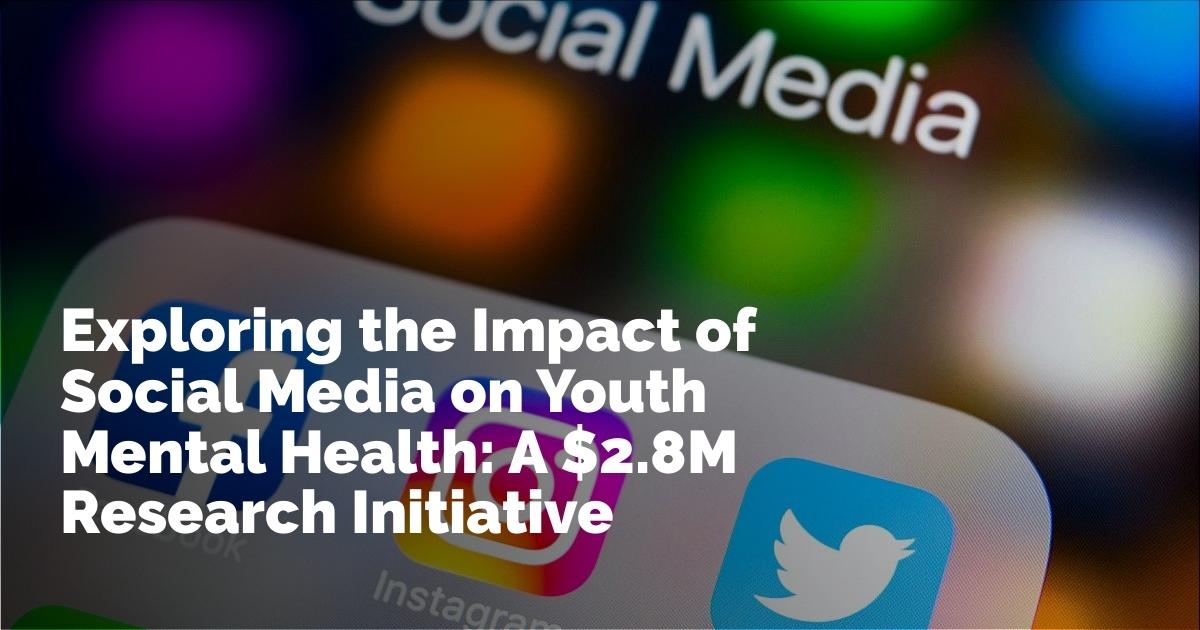$2.8 Million Grant Fuels Research on Social Media’s Impact on Youth Mental Health
The intersection of social media use and the mental health of young people is garnering attention, fueled by a substantial $2.8 million grant awarded to Indiana University Bloomington researchers. This five-year funding from the National Institute of Mental Health supports an insightful exploration into the nuanced relationship between digital communication and adolescent well-being. Researchers aim to dismantle prevalent assumptions about social media's negative impacts by focusing on language as a potential predictor of mental health issues.
Understanding Social Media and Mental Health Concerns
Recent years have seen a surge of scrutiny concerning the influence of social media on the mental health of adolescents and young adults. However, the mechanisms through which these digital interactions might affect psychological well-being remain largely ambiguous. Lorenzo-Luaces, one of the leading researchers, points out the need to understand why social media could be impacting mental health if it indeed does. Given that social media communication is predominantly text-based, the research zeros in on language as a critical factor in uncovering the emotional consequences of social media usage.
In line with growing concerns, a report titled "Social Media and Youth Mental Health" was issued last year by the U.S. surgeon general, advising on potential dangers posed to youth by digital platforms. Such cautions are quite relevant as a staggering 95% of teenagers have reported active use of social media, though the extent of its negative effects remains a topic ripe for exploration.
Research Framework: Study of Online Cohorts for Internalizing Symptoms and Language
The project, known as the Study of Online Cohorts for Internalizing Symptoms and Language (SOCIAL), sets out to scrutinize the language young individuals use on social media. A diverse cohort of 1,000 participants, aged between 13 to 20 years, will be monitored. The researchers employ a combination of survey diaries and cutting-edge machine learning techniques to examine whether the language used on these platforms corresponds with internalized mental disorders such as anxiety and depression.
A primary goal of this ambitious research endeavor is to identify harmful usage patterns on social media and to determine who might be most susceptible to their ill effects. By highlighting these risk factors, the research hopes to pave the way for interventions that promote healthier social media habits and shed light on the platform’s more detrimental aspects.
Building on Preceding Research and Expertise
The current work builds on prior research conducted by Lorenzo-Luaces and Johan Bollen, which similarly delved into the interplay between language, depression, and social media platforms. In 2021, this pair of researchers uncovered a correlation between depression diagnoses and the prevalence of negative, rigid, and extreme language on social media.
Johan Bollen, serving as a professor and chair of informatics at the Luddy School of Informatics, Computing and Engineering, melds psychology with artificial intelligence in his research, focusing on developing behavioral models of online interaction. Meanwhile, Lorenzo-Luaces examines various aspects of depression, especially interested in the potential of the internet and mobile applications to disseminate vital information and therapeutic practices.
An Interdisciplinary Approach to Groundbreaking Research
This project exemplifies interdisciplinary collaboration at its best, according to Lorenzo-Luaces, echoing his appreciation for Indiana University’s spirit of cooperative endeavor across disciplines, particularly within Luddy and the College. The challenges these projects tackle often push researchers beyond their conventional expertise, yielding insights unattainable through solitary inquiry.
Participant engagement will be facilitated directly through social media channels, ensuring the study’s participants reflect the authentic digital ecosystem being analyzed. Daily questionnaires will capture the mental health status and routine experiences of the participants, contributing to a robust data collection process. Post data acquisition, natural language processing technology will be employed to construct a quantitative model that addresses the fundamental research inquiry: Can negative language usage on social media serve as an indicator of depression and anxiety in young demographics?
Harnessing Artificial Intelligence for Psychological Insight
Bollen highlights the technical feasibility of leveraging artificial intelligence to parse social media posts for lexical indicators suggestive of mental health conditions. However, this research adopts a theory-driven perspective, prioritizing an understanding of the cognitive mechanisms and dynamics precipitating internalized disorders.
By amalgamating insights from social media interactions and natural language processing, the study endeavors to offer a comprehensive overview of depression's origins and intervention strategies. Social media’s connective nature allows researchers to trace relationships and communication patterns, offering potential explanations for how depressive language might proliferate more easily on these platforms, thereby associating social media use with heightened risks of depression, anxiety, and other internalized disorders.
This pioneering exploration promises to yield significant evidence that can inform public health strategies, advocate for better digital health standards, and safeguard the mental well-being of the youth navigating the vast online landscape.
출처 : Original Source

